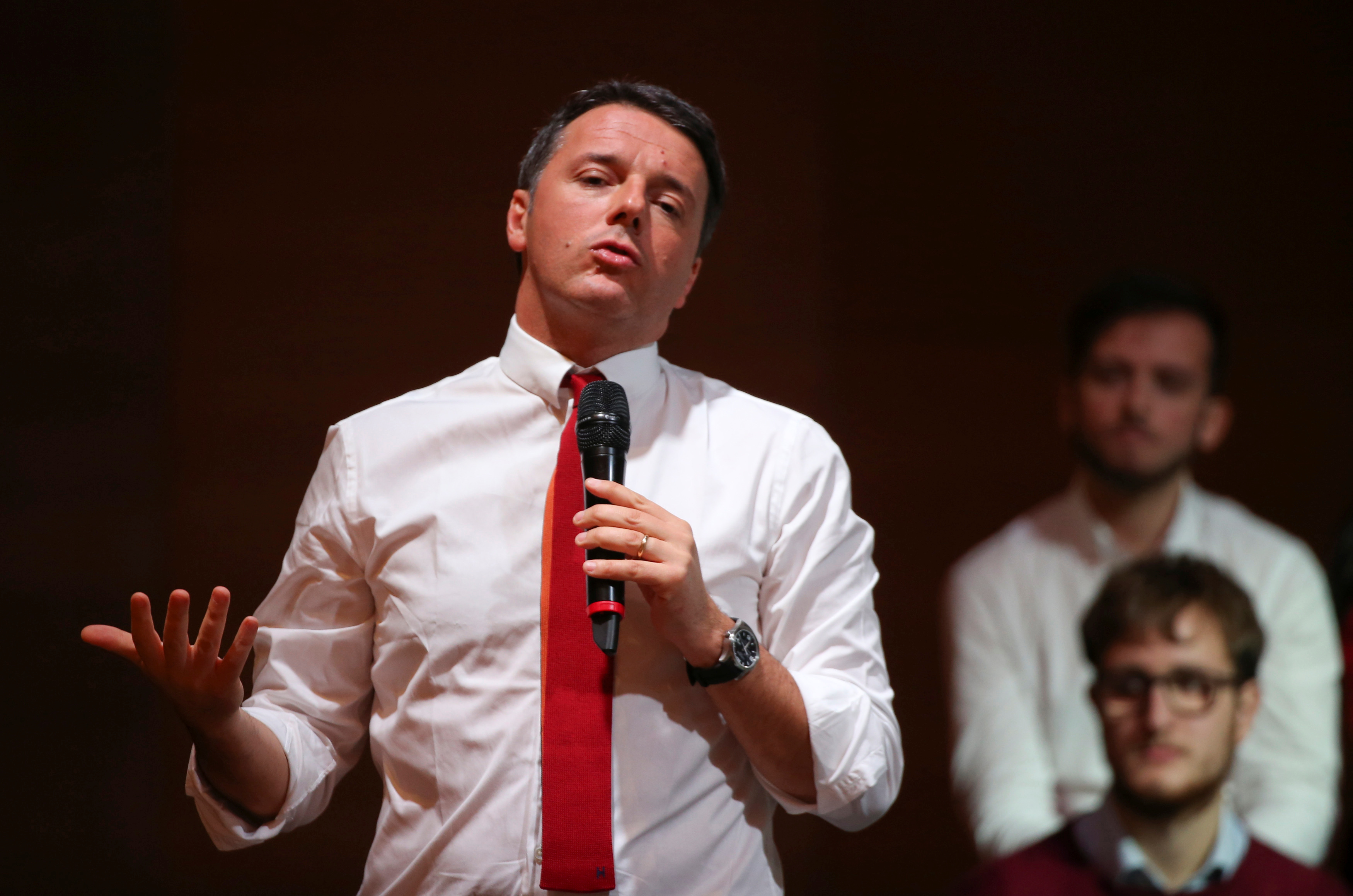
 Italian Prime Minister Matteo Renzi talks during a meeting in support of the 'Yes' vote in the upcoming constitutional reform referendum in Rome, Italy November 26, 2016. REUTERS/Alessandro Bianchi
Italian Prime Minister Matteo Renzi talks during a meeting in support of the 'Yes' vote in the upcoming constitutional reform referendum in Rome, Italy November 26, 2016. REUTERS/Alessandro Bianchi
European leaders are united in their desire to see Italian Prime Minister Matteo Renzi's constitutional referendum succeed on December 4. With Brexit, the election of U.S. President-elect Donald Trump, an emboldened Russia, upcoming elections in France and Germany and the challenge of political populism, the to-do list is long enough without an additional crisis in Rome.
There's also an economic imperative. A plan to recapitalize the debt-ridden Monte dei Paschi di Siena, Italy's third-largest bank, may falter in the event of political instability in Italy. Other banks attempting to raise capital could then struggle, and funding costs would rise throughout the sector.
And yet, Renzi's success would not be the unambiguous good news EU leaders, markets and other commentators are hoping for. His reforms will increase the likelihood the 5Star Movement — a populist, Euroskeptic anti-establishment party led by former comedian Beppe Grillo — wins power in the next election in 2018. Such an outcome would be disastrous for Europe and could imperil the euro.
A “Yes” vote in Renzi's constitutional referendum — designed to curb the powers of the Italian senate — will put into effect a reform of Italy's electoral system made earlier this year. Those changes introduced a two-round runoff, guaranteeing the winner an absolute majority in parliament, and as such, one-party government.
This new system, known as “Italicum,” might sound great in theory given Italy's history of dysfunctional politics. In practice, it could prove to be a problem.
France has a similar electoral system for choosing the president. There, voters on both the Right and Left typically converge on mainstream parties in the second round if their preferred choice is knocked out in the first.
* * *
That dynamic is unlikely to take place in Italy. The 5Star Movement currently polls just behind Renzi's ruling Democratic Party. But it has a sizable lead in second-round polling. This is because right-leaning Italian voters are more likely to vote for them in a run-off should their preferred party be knocked out in the first round.
This should be cause for alarm. Not only are 5Star members very inexperienced; they are also ideological populists. With them in power, the trajectory of Italy's economic policy would suffer greatly. Fiscal policy would become expansionary. No new structural reforms would be likely and important overhauls introduced by Renzi could be undone.
The new government would also inherit a debt pile that has increased substantially since 2011, when the country first flirted with a bailout. The European Central Bank's quantitative easing program — responsible for the ultra-low levels at which the government can currently borrow from capital markets — will also have wound up by this point.
The 5Star Movement's unorthodox policies and Italy's macroeconomic vulnerabilities would quickly undermine investor confidence, and the party would not be able to win it back. Doing so would require a credible fiscal consolidation package or a bailout or both. And 5Star would be neither willing nor able to do either.
As the third-largest economy in the euro and a founding member of the EU, a Greek-style solution imposed by Germany and other creditors would be inconceivable. The alternative would be disaster. Either the 5Star Movement would be forced to pull a Syriza-style U-turn and accept the obligations of euro membership or the government would probably collapse. But before either happened, a huge amount of damage would be done to Italy, and the eurozone would be dangerously weakened.
To be sure, such a chain of events is by no means inevitable. Renzi is an enthusiastic campaigner and he could still win in 2018 if a successful referendum allowed him to regain the political initiative and recover in the polls. Fear of the unknown could also deter a 5Star success. Italians are, like their peers elsewhere on the Continent, naturally conservative.
More troubles in the capital, where 5Star currently governs, could also hurt the party's national standing. Crucially, changes to the electoral system are possible — either driven by parliament or an upcoming Constitutional Court decision — that would further raise the bar for a 5Star victory in 2018.
But the risk remains. If Renzi succeeds on December 4, Italy will be governed by a system that makes it more — not less — likely 5Star could win power in 2018. Just as Brexit poses an existential threat to the EU, a 5Star victory in Italy could imperil the eurozone. EU leaders should be careful what they wish for.
Mujtaba Rahman is the head of Eurasia Group's Europe practice.
This article also appeared in POLITICO.